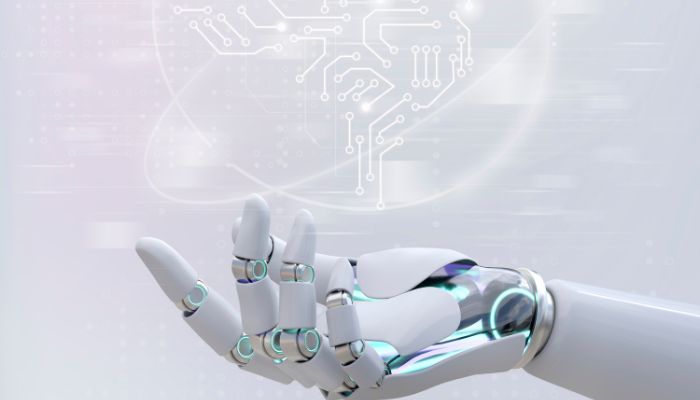As we stand at the crossroads of an unprecedented technological revolution, AI and automation are superseding as drivers of the dynamically changing job market. They have brought transformative opportunities that call for innovation and efficiency but raise challenges that are too critical to overlook. To those in human resources with vast experience spanning decades in terms of talent management and workforce transition, the future of work should not be a question of “if” but “how” artificial intelligence or automation will assume its role, more fundamentally, how to prepare ourselves and our companies for this historic change in the workforce.
This highlights the significant influence of AI and automation over the next decade. An entire set of industries that traditionally relied on person-hour efforts, from manufacturing and retail to healthcare and finance and beyond, is undergoing a revolution. AI and automation technology are now taking over a significant portion of the tasks performed conventionally by humans today and, in some cases, completing them more efficiently and effectively.
The manufacturing industry, where automation has been utilised for decades, is a prime example. Today, robots assemble products at speeds and precision that surpass human capabilities. They don’t require breaks, vacations, or insurance; they work continuously, which reduces costs and increases productivity while ensuring safer environments. In retail industries, AI is essential in managing stocks, predicting consumer demand, personalising customer experiences, and analysing robust purchase data.
Until recently, the health sector depended on administrative staff for bookkeeping and scheduling among other tasks. It now has AI-driven systems to self-diagnose, deliver prescriptions, and predict outcomes. The finance sector can now depend on real-time market data algorithms powered by AI to execute transactions and make investment choices quickly and at scales unimaginable for humans.
While the ecosystem is full of exciting innovations and dynamism, there is also the stark reality of job displacement. Many more jobs will be automated, mainly routine, manual, or predictable. Any work that involves the administration of various kinds of paper, like factory line work, is rapidly becoming obsolete. Machines are progressively carrying it out. These changes directly put the skills of employees at risk, especially those whose jobs are tied to these types of tasks. A primary concern now is how organisations—and HR professionals—can support workers in transitioning to new roles and skill sets.
Human-centric opportunities
While AI and automation displace various jobs, they open up many more fields and occupations. The opportunities lie in identifying areas where human input cannot be substituted.
- Human creativity and complex problem-solving: The sector that relies on innovation, creativity, and emotional quotient demands human presence. Disciplines like management, health care, designing, marketing, and teaching intensely use human understanding and knowledge with great emotional quotient. Human judgement, creativity, and contact cannot be avoided in those business areas, even using machines.
- AI development and management: In reality, the growth comes when these systems are demanded by experts, developers, managers, and researchers who can improve and further design such automation or AI technology. There is great demand for critical roles like AI developers, machine learning engineers, and data scientists; however, the need for specialised talent to ensure the safe, responsible, and ethical use of these technologies is critical. With data privacy issues, algorithmic bias, and hackers, the demand for experts in these disciplines is rising.
- Human-AI collaboration: Human-AI collaboration will make the concept of machine replacement of human beings obsolete. Once AI is introduced as an everyday business process and becomes a norm, there is expected to be a significant need to translate the insights gained from machine interactions and the judgement of humans into managers, interpreters, ethicists, and watchdogs. New roles of trainers, explainers, and facilitators will emerge to support the integration of advanced technologies. This collaboration model will enable businesses to blend human expertise with the capabilities of machines, unlocking new avenues of growth.
Industries will evidence that the future of work will be exhilarating and challenging due to technological disruption, innovation, and transformation in the workforce. The rapid emergence of AI and automation is altering the shape of numerous industries. Amid these shifts, there are unparalleled opportunities to think anew about how we work, grow, and interact with technology—and to reboot all of it. This change lies in expanding the scope of quality, creativity, empathy, and problem-solving. The key to success is preparing ourselves and our organisations for that inevitable shift. The journey to readiness involves cultivating resilience through continuous learning, adapting to new technologies, and enhancing skills that remain human. Harnessing the power of these technologies to drive innovation, growth, and prosperity, with the support of a resilient workforce will enable this transformation. In this way, technology will not replace human capabilities but support people by complementing their strengths to unlock new opportunities.
References:
- McKinsey & Company: “The Future of Work” and “Jobs Lost, Jobs Gained”
- Deloitte: Reports on human capital trends and technology’s impact on workforce dynamics
- World Economic Forum: Articles on AI and automation’s impact on industries
- OECD: Research on AI and automation’s economic and employment implications
Books:
- Erik Brynjolfsson and Andrew McAfee, The Second Machine Age
- Kai-Fu Lee, AI Superpowers
Government and Industry Reports:
- U.S. Bureau of Labor Statistics
- European Commission: Workforce trends and technological advancements





